Pricing switch up ahead for solid waste and biomass
At the start of the year, the prime minister received a report from the Ministry of Industry and Trade (MoIT) outlining a proposition to establish a novel pricing structure for electricity generation utilising solid waste and biomass power projects.
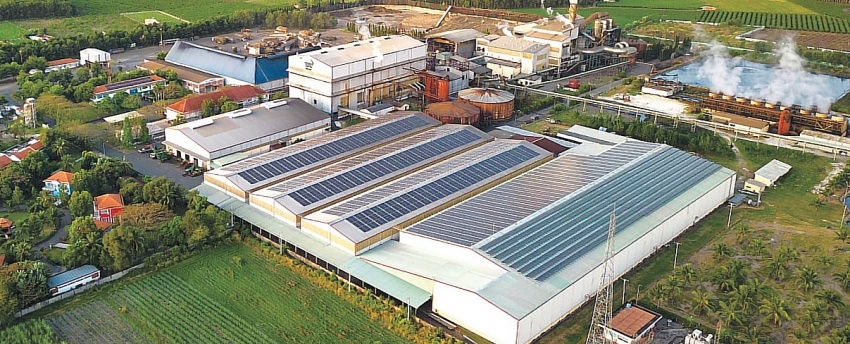 |
| The feed-in tariff mechanism is presently being utilised to incentivise investors, Le Toan |
The proposed framework would encompass all forms of electricity generated from solid waste and electricity generated through biomass. Vietnam Electricity and the project investors will negotiate prices and enter into power purchase agreements (PPAs) based on the price framework established by MoIT, as stipulated in this proposal.
The primary rationale for MoIT’s proposal to discontinue the preferential price mechanism for biomass electricity and solid waste is technological advancement. The tariff for biomass electricity ranges from 7.03 to 8.47 US cents per kWh, contingent upon the presence or absence of co-generation in the project. The tariff for solid waste electricity is from 7.28 to 10.05 US cents per kWh.
The MoIT believes that, like other power plants in the system, the electricity price of these plants should be determined through negotiations between electricity buyers and sellers based on the input parameters of the plant. The negotiated pricing falls within the MoIT-issued price range.
Despite MoIT’s assurance that business investment will remain assured for projects that have previously entered into PPAs in accordance with the Law on Investment 2020, numerous investors remain apprehensive that the revised price will impede capital recovery and new investments. Vietnam had 23 biomass and solid refuse power facilities with a combined capacity of over 523MW as of six months ago.
“Despite the extremely positive outlook, many sugar companies are not interested in developing co-generation thermal power projects from bagasse,” said Vo Thanh Dang, general director of Quang Ngai Sugar JSC. “This is despite the fact that many businesses have calculated their investments.”
A suitable electricity purchase price, in his opinion, will encourage the construction of heat-power co-generation facilities in the sugar industry, as companies will be able to utilise a portion of the generated electricity for sugar production and transfer the remainder to the national grid.
High investment capital costs are an additional barrier for biomass and refuse power. Moreover, policies that incentivise the purchase of electricity are not conducive to biomass power, and there is currently no mechanism in place to exchange certificates pertaining to the reduction of CO2 and greenhouse gas emissions.
Energy analysts are of the opinion that the government’s policies for waste incineration and gas recovery facilities are unattractive and do not provide new advantages. The costs associated with developing biomass power remain significantly elevated in comparison to alternative renewable sources like wind and solar.
The feed-in tariff (FiT) mechanism is presently being utilised to incentivise investors to contribute cash flow towards the development of biomass power projects. However, for tech that is not co-generation, Vietnam’s FiT costs only 8.47 US cents per kWh, which is less than many other nations, including Thailand, Malaysia, and the Philippines.
Numerous hazards will render financing challenges for banks in the presence of low preferential pricing. Insufficient leverage on the financial market discourages banks from extending capital if the FiT is not exceptionally favourable.
Vice president of the Vietnam Energy Association Nguyen Van Vy stated, “Achieving investment efficiency becomes a challenging task if the facility operates for a mere few months per year. The generation of biomass energy from sugarcane bagasse is seasonal for approximately 3-6 months and relies on the output of basic materials. Basic material depletion often forces power facilities to cease operations.”
In order to maintain year-round operations, the unified implementation of prices will incentivise co-generation biomass power plants at sugar mills to substitute sugarcane bagasse for fuel, Vy added. “Additionally, this approach facilitates investment efficiency and improves projects’ access to credit.”
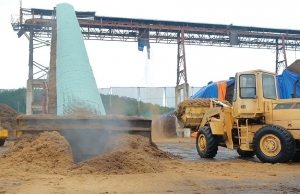 | New feed-in tariff advocated for biomass energy bonanza Although the Vietnamese government hoped for deeper biomass energy investment through a previously-introduced feed-in tariff, some experts advise that a new one must be coupled with other legal incentives to ensure a more significant share in the country’s energy mix. |
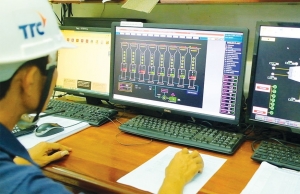 | Biomass boost to fuel power evolution Although the Vietnamese government has introduced policies to promote the development of biomass power, results so far remain modest, leaving insiders to ponder what is hindering the development of this type of energy. |
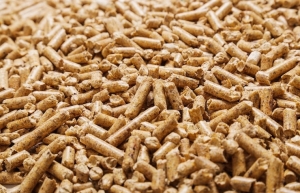 | Co-generation technology could act as solution to help balance power supply While biomass energy from sugarcane and other agricultural by-products has proven to be financially rewarding and environmentally useful, smaller companies remain discouraged to participate. |
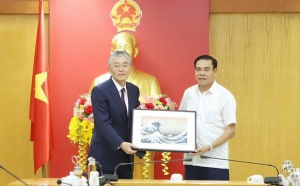 | Erex explores possibility of developing biomass power plant in Ha Tinh Japan's Erex Co. Ltd. is exploring the possibility of developing a biomass power plant with a capacity of 50MW in the central province of Ha Tinh. |
What the stars mean:
★ Poor ★ ★ Promising ★★★ Good ★★★★ Very good ★★★★★ Exceptional
 Tag:
Tag:
Related Contents
Latest News
More News
- Trung Nam-Sideros River consortium wins bid for LNG venture (January 30, 2026 | 11:16)
- Vietnam moves towards market-based fuel management with E10 rollout (January 30, 2026 | 11:10)
- Envision Energy, REE Group partner on 128MW wind projects (January 30, 2026 | 10:58)
- Vingroup consults on carbon credits for electric vehicle charging network (January 28, 2026 | 11:04)
- Bac Ai Pumped Storage Hydropower Plant to enter peak construction phase (January 27, 2026 | 08:00)
- ASEAN could scale up sustainable aviation fuel by 2050 (January 24, 2026 | 10:19)
- 64,000 hectares of sea allocated for offshore wind surveys (January 22, 2026 | 20:23)
- EVN secures financing for Quang Trach II LNG power plant (January 17, 2026 | 15:55)
- PC1 teams up with DENZAI on regional wind projects (January 16, 2026 | 21:18)
- Innovation and ESG practices drive green transition in the digital era (January 16, 2026 | 16:51)


















 Mobile Version
Mobile Version